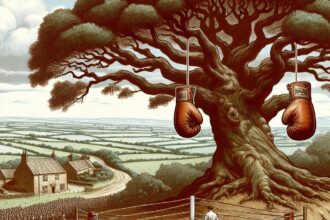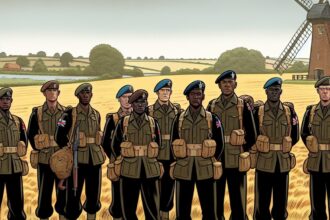In the late 1970s, a group of resolute women from Lincoln embarked on a daring endeavour to challenge societal expectations. Fed up with the widespread presence of semi-nude women on calendars in workspaces and public areas, the Lincoln Women’s Action Group decided to produce their own calendar showcasing men. This unique move was revolutionary for the time and aimed to tackle and question the prevailing culture of objectification.
The trajectory to actualise this calendar was not devoid of obstacles. Initially dismissed by a local printer, the group organised a protest in Lincoln’s city centre, gaining media coverage that eventually led to a printer from Birmingham accepting the project. Retailing at £1 per calendar, the initial batch quickly sold out, necessitating further prints.
Local men, including Steve Edwards, who operated a record shop, and Paul ‘Sid’ Wetherby, a newcomer to Lincoln, modelled for the calendar. Despite initial reservations, they wholeheartedly supported the project, making a playful yet potent statement about gender norms and representation.
The calendar’s narrative reached beyond the borders of Lincolnshire, attracting the focus of international media, inlcuding renowned publications such as The Guardian. This local initiative became a globally-discussed subject, reflecting the powerful influence of grassroots activism.
Presently, the calendar is stored in the feminist archives at the University of Nottingham, acting as a tribute to Lincoln’s dynamic history of testing societal conventions. This narrative was recently brought back to life in the BBC’s Hidden Lincolnshire podcast, emphasising its enduring importance.
For individuals intrigued by local history and tales of activism, the BBC’s Hidden Lincolnshire podcast is a treasure trove, revealing insights into the rich tapestry of our county’s past.
This story was adapted by The Lincoln Post from original reporting by www.bbc.com.








